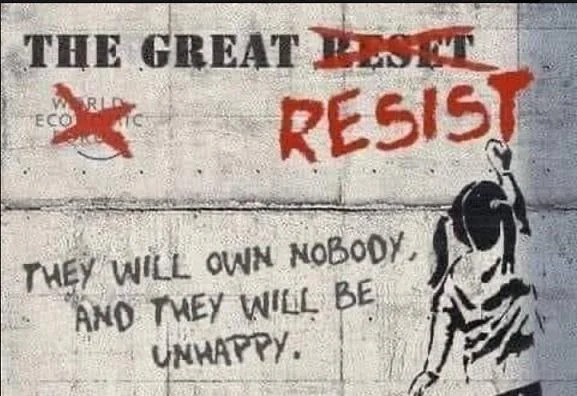
For all the furore about right-wing nationalists gaining power in recent European elections, some other phenomena have been less noticed. One of those was the fact that women are now turning nationalist in places like France. Another is the rise of left-wing nationalism, something believed by many to be a contradiction in terms.
Because of World War II, right-wing nationalism is the biggest bogeyman in the West today. It’s such a bogeyman that it has soured people’s attitudes to nationalism itself. Right-wing nationalism, we are told, is the greatest evil imaginable, and all social problems have their roots in it somehow.
Right-wing nationalism is very masculine, and can easily be masculine in such a way that it turns many people off (especially women). Heinrich Himmler warned against a particularly aggressive and boorish type of masculine nationalism that drove decent people away. The emphasis on exclusion of outsiders can also turn away sophisticated people. Thus, there are several fair reasons not to like it.
Right-wing politics also tends to have theocratic sympathies, and so tends to want religious-based restrictions on things. The idea of banning abortion, and thereby forcing raped women to carry to term, seems appalling to most, but it’s a common theme in right-wing politics. Cannabis prohibition, likewise, seems like a relic of a bygone age to most people, but not to the religious right, who are happy to keep destroying the lives of cannabis users. The suggestion often made by Kanye West and Nick Fuentes – that non-Christians should be barred from public office – turns a lot of people away.
Leftist nationalism offers most of the same benefits as right-wing nationalism without the paranoia, aggression and control freakery.
Sooner or later, someone in every country is going to realise that a lot of people want nationalism but don’t want authoritarian restrictions on civil liberties or more Jesus rammed down everyone’s throats. These someones will find themselves being the only ones in a very large niche – that of leftist nationalism.
Sahra Wagenknecht’s recently-founded leftist nationalist movement in Germany is an example of what is now becoming possible. Wagenknecht has recognised that working-class Westerners no longer feel represented by the discourse of the left. This has caused them to turn to protest movements.
Because the left is so cosy with the political establishment all over the West, protest movements tend to be right-wing. This has meant that a large number of protest voters in the West have found themselves tied up with unsavoury religious authoritarians and other loonies of the extreme right. The mainstream left has mostly sneered at these people and called them deplorables and racists. Moreover, the political establishment has exhausted its anti-nationalist ammunition by firing it all at the right-wing nationalists. All of this has created great opportunities.
Wagenknecht’s movement is the first of what will be many: 21st Century leftist nationalist movements. Already it is recording 8-9% in some national polls, and almost twice that in some state polls.
Many other Western countries will soon discover that nationalism does not necessarily imply support for right-wing stupidities such as reducing investment in young people, rolling the social development clock back 1,000 years or banning everything.
Neither does it imply support for militarism – Wagenknecht is among Germany’s biggest critics of escalating the war in Ukraine. Leftist nationalism has the same concern for children and vulnerable people as ordinary leftism – it just doesn’t have the globalist concerns for e.g. defeating Russia on the battlefield or for building a worldwide dictatorship of the working class.
In fact, left-wing nationalism can offer many of the same advantages that the leftist establishment can (or used to). Left-wing nationalists understand as well as anyone else that money invested into the first 24 months of any child’s development will pay great dividends to the nation later on, and that such considerations are more important than the endless bleating about tax cuts that characterise right-wing discourse.
The major consequence of the rise of left-wing nationalism will likely be a further normalisation of nationalism. If the presence of left-wing nationalism proves that nationalism doesn’t need to be xenophobic, paranoid, aggressive, nasty etc., then many people will no longer object to it. If it can avoid all of those things and also provide an alternative to globalist economic desolation, then great!
One of the eventual consequences of this rise will be the associated rise of centrist nationalism. Inevitably, as the right-wing nationalists provide an alternative to the right-wing establishment, and the left-wing nationalists likewise, a centrist nationalism will rise in an effort to pull together the other nationalist blocs against the establishment itself.
What the continued rise of left-wing nationalism will mean is a broad challenge to the globalist status quo over the next 20 years.
*
For more of VJM’s ideas, see his work on other platforms!
For even more of VJM’s ideas, buy one of his books!
*
If you enjoyed reading this piece, buy a compilation of our best pieces from previous years!
Best VJMP Essays and Articles of 2023
Best VJMP Essays and Articles of 2022
Best VJMP Essays and Articles of 2021
Best VJMP Essays and Articles of 2020
Best VJMP Essays and Articles of 2019
Best VJMP Essays and Articles of 2018
Best VJMP Essays and Articles of 2017
*
If you would like to support our work in other ways, make a donation to our Paypal! Even better, buy any one of our books!



